In my Tablet essay on Michael Denneny last year, I set up a maybe somewhat artificial opposition between his project at Christopher Street and that of Fag Rag. The former was meant to be a ‘gay New Yorker,’ aimed at a more-or-less educated, more-or-less middle-class gay male readership, interested in exploring what a distinct gay cultural politics and aesthetics might become if freed from both the closet and the tutelage of the anti-capitalist feminist left. Fag Rag, organized by ‘intellectual’ and ‘radical’ gays out of Boston (in what must have been, along with the Boston School of Photography [itself not-not-gay] one of the last expressions of that city’s vanguardist status in American culture), was a product of that left, and the two publications represent very different visions of what gay life is and what it could be ‘for.’
Like the opposition between edgy New Narrative experimental writers on the West Coast and more aesthetic-conservative ‘realist’ writers in the East Coast Violet Quill, this is a bit facile. There were of course contacts between people in both groups—the gay world has never been that big. Michael Bronski, one of the main Fag Rag guys, was for example published by Michael Denneny in his Stonewall Inn Editions line for St. Martin’s Press (a tbh pretty dumb book that reheats the Bersani thesis to argue that straights hate gays because we embody the dangerous subject-shattering power of sexuality, which is actually a good thing, and we must resist assimilation etc…).
On the other hand, Fag Rag really is almost a caricature of tedious leftist takes that subordinate pleasure, freedom, possibility to an over-arching project of undoing all forms of inequality, domination etc which are understood to be multifarious (capitalism, sexism, speciesism—more on this in a bit) but interconnected, such that it’s politically/morally irresponsible to advocate simply for the well-being of your own group, or your self. Everything is connected, including how you fuck.
Thus, for example, here are a few of the 10 reasons BDSM is bad:
I don’t like no whips and chains… because they cost money and uh not everyone has money? Have you even thought about that? Plus you’re wasting your energy fucking (ie living your own life) when you could be giving everything to the movement! Have you considered not fucking?
Of course, such radicals often argue that fucking is critical radical revolutionary—the mentality that during AIDS saw people like Bronski, Crimp etc shout that no we mustn’t stop celebrating promiscuity because sex-as-self-shattering is this transcendentally valuable practice. Whether they want us to fuck or not fuck, they can never be normal about it—that is, can’t let sex be primarily about fun and connections with other people, and sexual practices be about putting the energy of sex into a sustainable form of life that won’t kill or bore us. Instead of judging how we fuck by the standard of how it contributes to the making of our beautiful lives, they ask if our dildos are ethically sourced and shouldn’t we be out protesting?
Along with capitalism, we’ve got to overthrow Christianity and RETVRN to the uh Bronze Age? Or maybe the Pleistocene.
Adorno and Horkheimer + cock and pot.
Well, all this sounds rather like RFD without the semi-rural charm and hippie friendliness, but there are, as in RFD some charmingly goofy drawings and terrible personal-political poems:
It’s only right to feel like your bad art is doing something Important—without such false beliefs, why get up in the morning? But there’s a critical error made—one Foucault warned us about already in the first volume of History of Sexuality—in imagining that what we like doing, our pleasure, is not only exciting and vitalizing to us but threatens vast evil forces that have long warped society (this feels different from, but is actually the same mistake as, imagining that those evil forces have so spiraled their way into our pleasures that we must painstakingly examine the history of ourselves so that we can at last be free of their malign influence and be good), that fucking is great not because it’s fucking but because it’s a kind of service to the struggle.
The mistake is particularly bad if, like Charles Shively in this 1975 essay, you’re talking about fucking animals.
Now I’m not sure that homophobic teenagers—either in real life or in eroticized remembrance—are the best sources for understanding “the link between animality, sexuality and homosexuality.” They’re not the experts! But Shively goes on for several pages arguing that the attack revealed how the denigration of gays is structurally the same as the species-ist denigration of animals. Gays, he says, are figured by straights as abject bearers of a debased, bestial sexuality—sexuality itself, which gays are made to represent, is understood as the animal, non-human part in man. Therefore (and tbh, he has me so far!) through a retarded logic of conflation, overcoming homophobia means not just convincing straight people we’re equally human (that we’re the earthly representatives neither abject sex nor animality), or even convincing them that sexuality is not abject and inhuman, but undoing the human/animal distinction.
Every particular oppression—hell, every particular statement or thought—takes place within, is possible because of, a whole network of oppositions, tropes, received ideas etc, such as, for instance the binary good-bad or the assumption that words label identify things that persist over time. Whenever we go after one oppression, or even just talk about one issue, we’re of course not going after all the other elements of our culture and language that are somehow connected to it—and thus there’s always a possibility of a kind of blackmail by which our saying the rent is too high, or the desert growing, or whatever, is answered with a scolding that we’ve ignored how this ignores the problematic history of the binaries high-low growing-shrinking, along with the inter-related oppression of some exotic group of suffering losers.
We’re doing this right now should be the answer to these distractions, but within a certain kind of left universalist radicalism—which is really just liberal universalism without the moderating influence of narcissistic attachment to one’s own group—that sounds hateful and exclusionary. Thus we ought to stop whatever we’re doing to consider how animals are the real victims of homophobia, how their oppression and ours are linked, how we shouldn’t be invested in the fraught concept of the ‘the human’—the only thing worse than homonationalism and assimilation, where gays try to have rights and status within their own countries, is the species-ism by which gays try to have rights and status within the human race. This is a train of thought that is still running at Duke University Press!
That’s the theory; bestiality is the practice. Shively for some reason concludes by telling us that he himself isn’t a cat/dog-fucker, but he’s hearing and heeding and trying to be a better ally:
I think in a lot of ways we’re still in—or need to properly return to—this scene of the 70s when the casting off of “discredited Western dualisms” came to seem like the great project for thought, politics and sex. Because, indeed, as the non-retarded deconstructionists understood, there’s no doing away with all the dualisms (they are what we think with, they are what we are), and no way, in confronting any particular dualism, of simply eliminating one pole in favor of upholding the other.
This is something I get at it in my Tablet essays on Eric Marty and my defense of Avital Ronnell’s quirky Derrida-ism in the on Andrea Long Chu. Indeed, I argue in my essay for Tablet on Barthes’ idea of ‘the neutral’ that nothing is more traditionally Western and more binarizing than polemically trying to overcome binary thinking—and that we ought instead to be paying more attention to the many ways in which we do, already, elude both polemical binarisms and polemical injunctions to overcome them, nurturing these micro-practices that make up the unreflected-upon background of our living tolerably together. That sort of gentle deconstructionism, which neither wages war on categories nor tries to uphold them in their ancient authoritative splendor, is what I see as the spirit of Barthes’ ‘second liberalism,’ a notion he adumbrated in interviews and lectures in the years before he got hit by a truck but never had time to elaborate more explicitly.
The intellectual attitude—and perhaps it’s no more than a mood—of ‘second liberalism’ has a certain queerness about it, insofar as it’s non-polemical, elusive, orthogonal to debates about categories and binaries. But it’s also I think one that can be productively connected to gay specificity (a topic Barthes wasn’t really interested in) as I’ve been thinking about it through people like Denneny and Foucault, who were trying to detach gay male spaces and cultural politics from the universalist, historical-teleological, grand-theoretical demands of the left.
To insist on the legitimacy of gay—or any other group’s—autonomy and even indifference to causes like animal rights (understood by Shively as their right to be fucked by people lol) or the dismantling of phallogocentric categories, or even to practice indifference without insisting on it explicitly, is already a resistance to demands that emanate from throughout our politics echo down through our tradition that we enroll our pleasures and our understandings of ourselves in a larger campaign on behalf or against something—which might even be against binarism! Such enrollment not only gives an overly aggressive charge to whatever we’re doing, but also submits the latter to a foreign authority, such that now we have to ask if our cock ring is good for the cause instead of if it fits, or if we are doing enough to overcome the binaristic hangups that prevent us from sucking off our cat.
In this sense, Fag Rag for me represents a sad failure both of the queerness of postmodernism (the right kind of playful, survivable, non-belligerent, happy evasion of the binaries that dominate and constitute us) and of the potential of gay identity—bringing the two together in a kind of upside-down Sunday School that commands us to worship the Devil and fuck animals—or, even worse, to tarry in the ambivalence of why we are not yet fucking animals.
Today, even worse, anarcho-commie-pagan-antimasculine shtick is more likely to appear, as it does in Baedan: A Journal of Queer Nihilism, without even such aesthetic flowers on the chains of theory as the Arthur Evans Stone Age idyll fantasies and kooky fey sketches, and superficially renewed with some references to Lee Edelman. And, more generally, the larger political-moral imperative to route gay male thinking, on everything from religion to fucking, through the ideological matrix of a totalizing left—without the Devil-Sex and Cat-Masturbation of Fag Rag—now controls not only the brains of a few Boston ‘radicals’ but nearly all academic and left-liberal (really, almost all non-homophobic) discussion of gay issues. Would an aggrieved feminist let me do this? gay boys in academia are trained to ask themselves, developing an internal she/they censor. Sad!
But, however much a sign of bad things to come, Fag Rag does testify to what I think is an enduring wish that sexuality in its power both to transgress norms (its criminal, antinomian, queer element—which we share with straight people, of course) and to connect us to each other in new ways (which is the basis for specifically gay forms of life, identities, traditions etc) be leveraged to remake ourselves and the world. A good and a right and a joyful thing! With a little moderation…
In what may be a comparison that no one will like, I’ve written here and there about what I see as the continuing importance of national identity to moderate the universalist horizons of Western political thinking in its liberal and leftist traditions (“a certain understanding of the nation as a horizon for political action within which individual rights and aspirations towards a cosmopolitan humanity could both find their place”). In dialogue with what I’ve written about how certain strains of queer theory can offer resources for liberalism in re-articulating what’s worth defending about individual freedom (that is, why the latter is desirable precisely because we’re not self-identical individuals but self-undoing perverts), I’d say as well that gay identity offers resources for updating arguments about how liberalism/progressivism needs nationalism and vice versa.
This is already getting a bit long, but at the risk of being totally boring, I wrote a series of essays some time back for Foreign Policy critiquing Habermas, Ricoeur, Bernard-Henry Levy, and Timothy Garton Ash, who all, despite their different politics, I argue, treat the nation—or really any collective identity smaller than humanity—as something essentially illusory, fake, stupid or at any rate symbolic and manipulable, something to be done away with or pressed into service for the achievement of a greater cause.
For example, I conclude of Habermas:
The legacy of the French Revolution, mass emotion, and virtuous elites are only some of the incoherent and ineffective cultural resources that Habermas has drawn on in support of his Kantian political ideal. Such resources are supposed to motivate European citizens to forge a common will, while enabling them to break with historical forms of collective identity. None of them, however, seem to function in the absence of the traditions that Habermas intends them to replace. In an implicit admission of this failure, Habermas has turned in recent years to Christianity as another such resource.
In his recent Auch eine Geschichte der Philosophie, Habermas argues—in a version Schmitt’s claims that he once vehemently rejected—that Christianity has been a historical source for many of liberalism’s core concepts. He insists that Christians today can contribute to the liberal project by “translating” Kantian imperatives into religious language and inspiring believers to advance liberal ends.
Looking back over those essays, I’m struck by how much my critiques of the place of ‘the nation’ within liberal-progressive thought apply to what I have been saying more recently about the way ‘queer theory’ and related forms of political thinking have tried to instrumentalize gay identity but ultimately undermine it. So across all of this writing from the past three or four years, there’s a double effort to defend a kind of collective identity as a moderating force in politics (even in the midst of peak ‘identity politics’! indeed, precisely out of a sense that what we usually mean by the latter is not the only way of doing identity politically)—now including gay identity—and, in tandem with that, to hold onto the productively queer aspects of post-modern thought that seem to relativize or even threaten notions of identity along with all the Western binarisms, but which also, I think, can, in conversation with each other serve as moderating influences on (or as means of productively channeling) triply: each other, the potentially totalizing dimensions of modern political ideologies, and the primary sexual transgressive energy that makes and unmakes us.
The second liberalism, in other words, will be sexy, gay and queer!




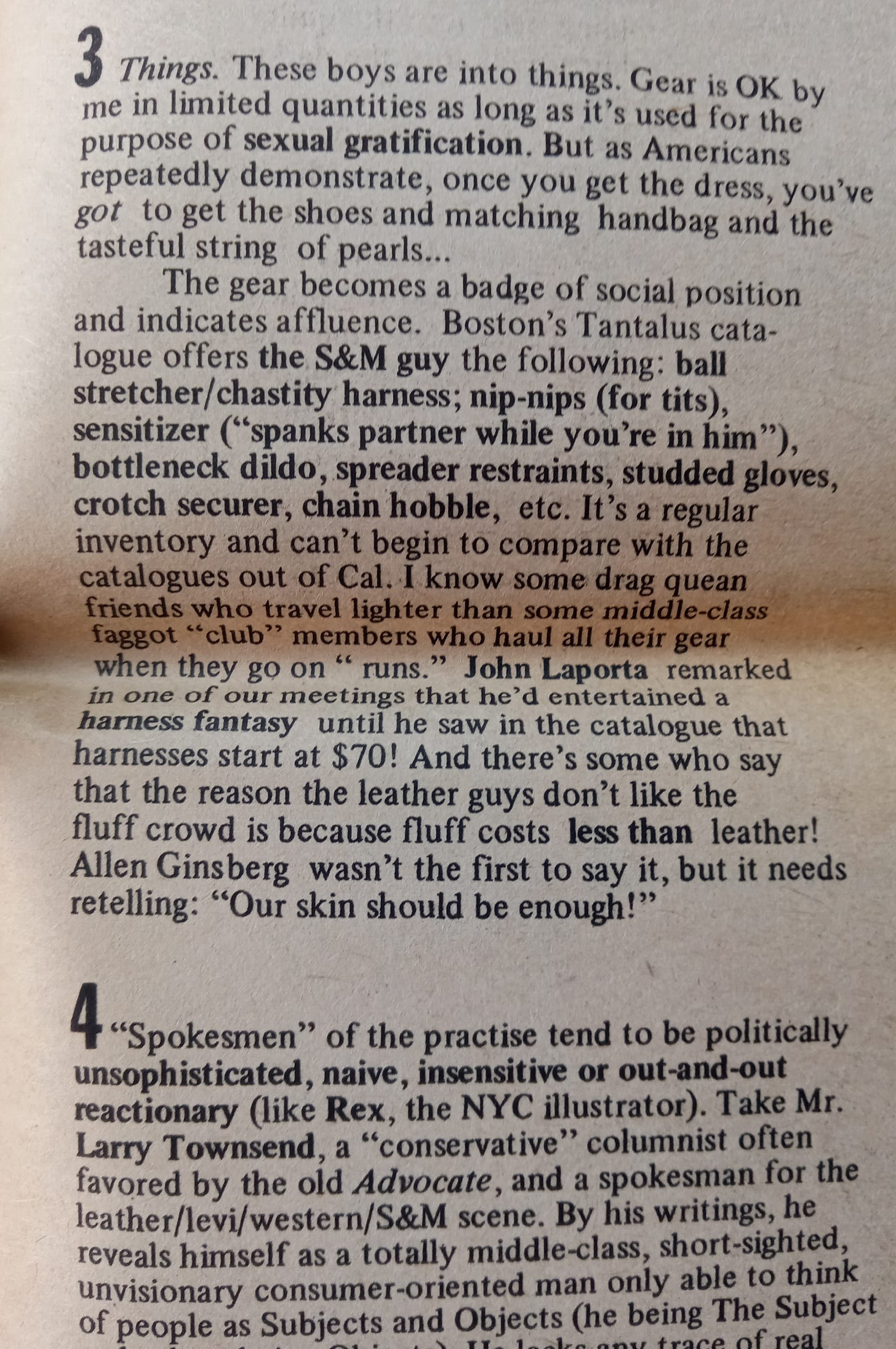

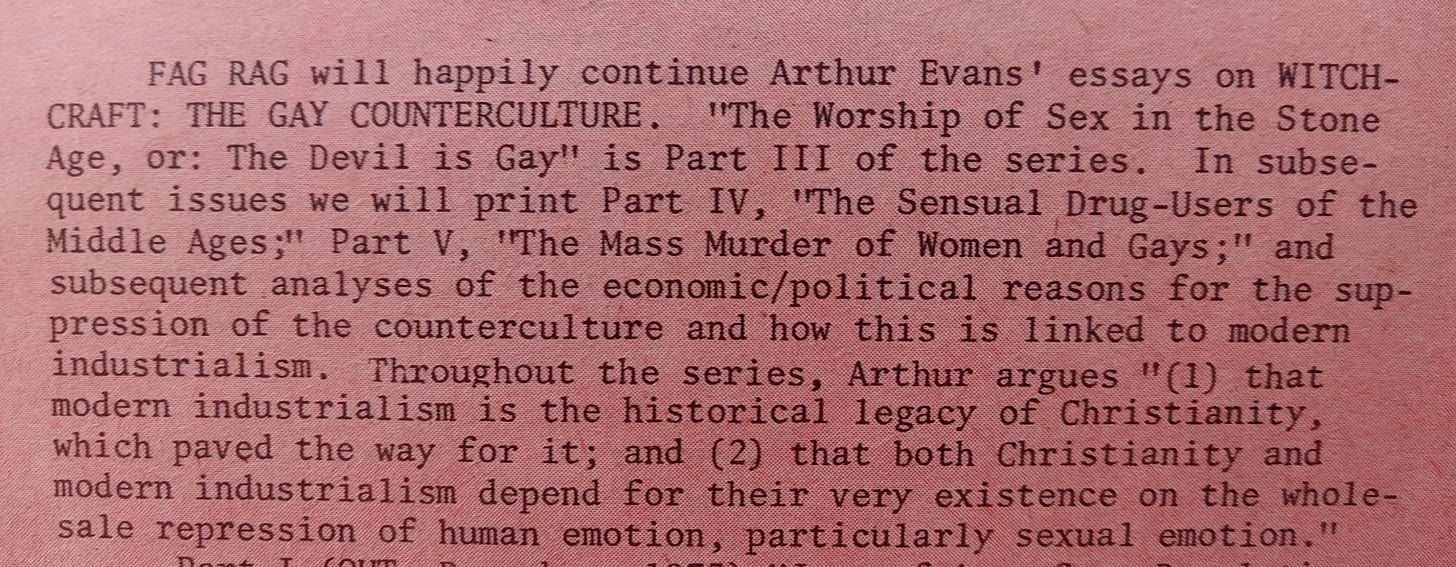
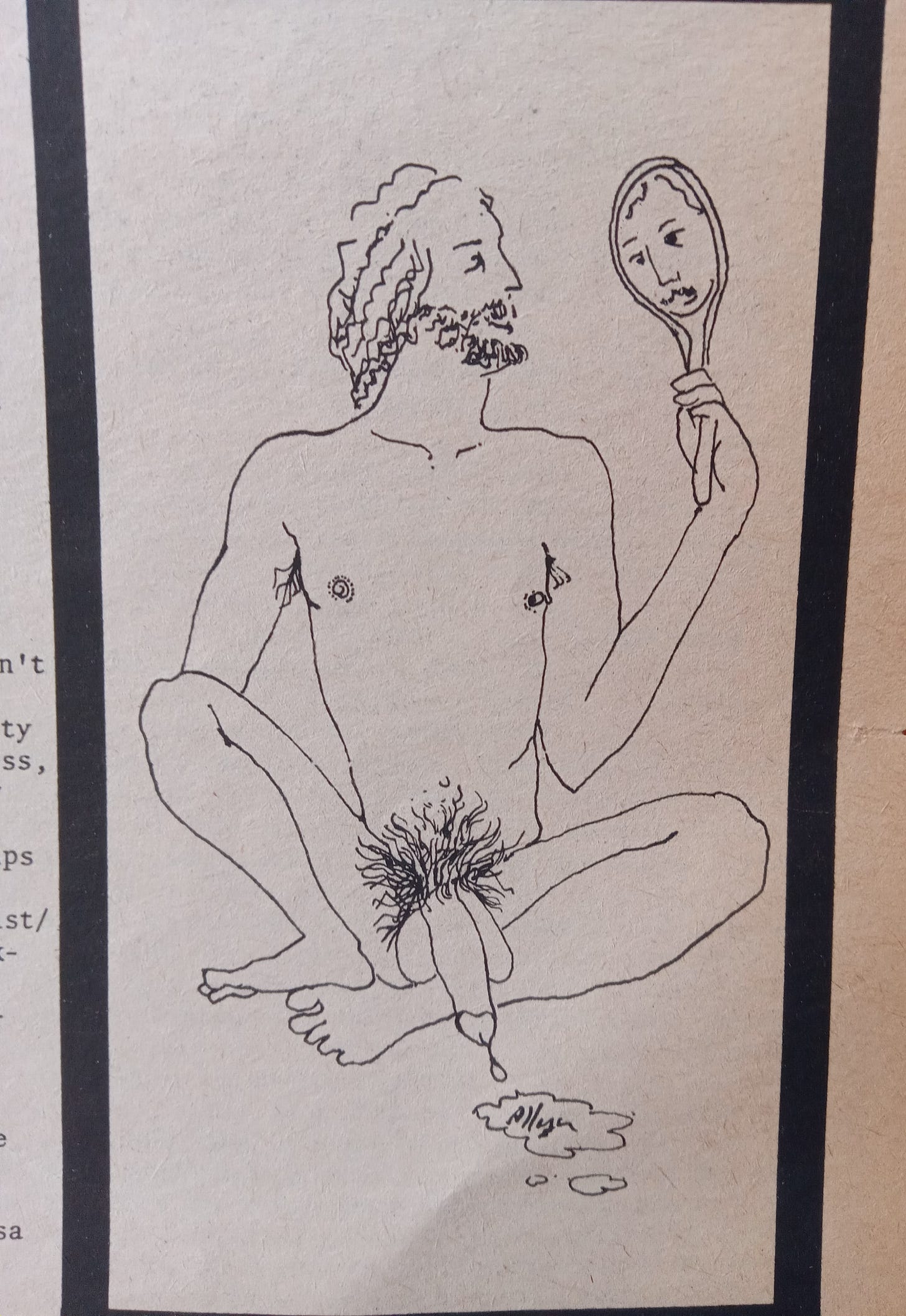


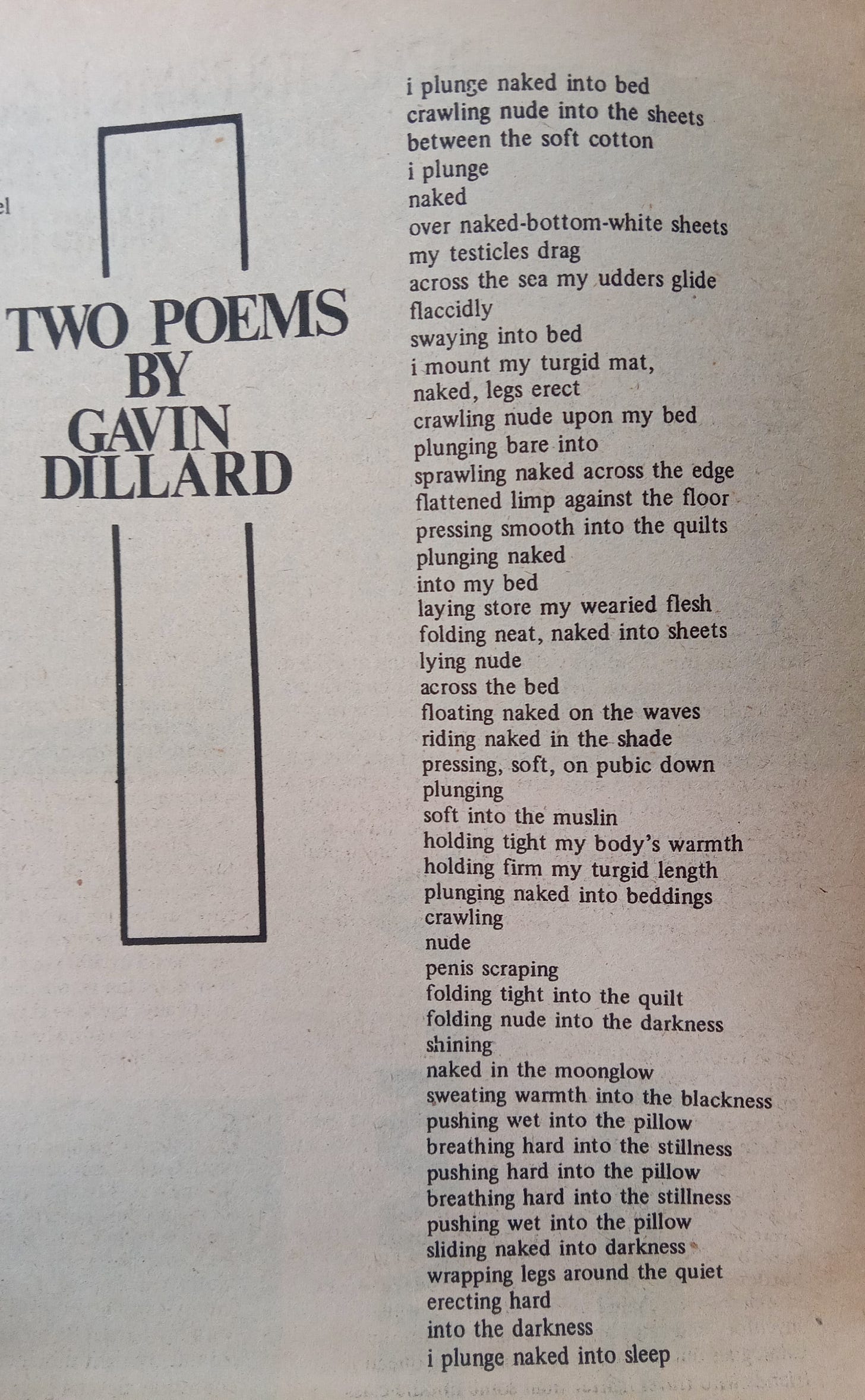
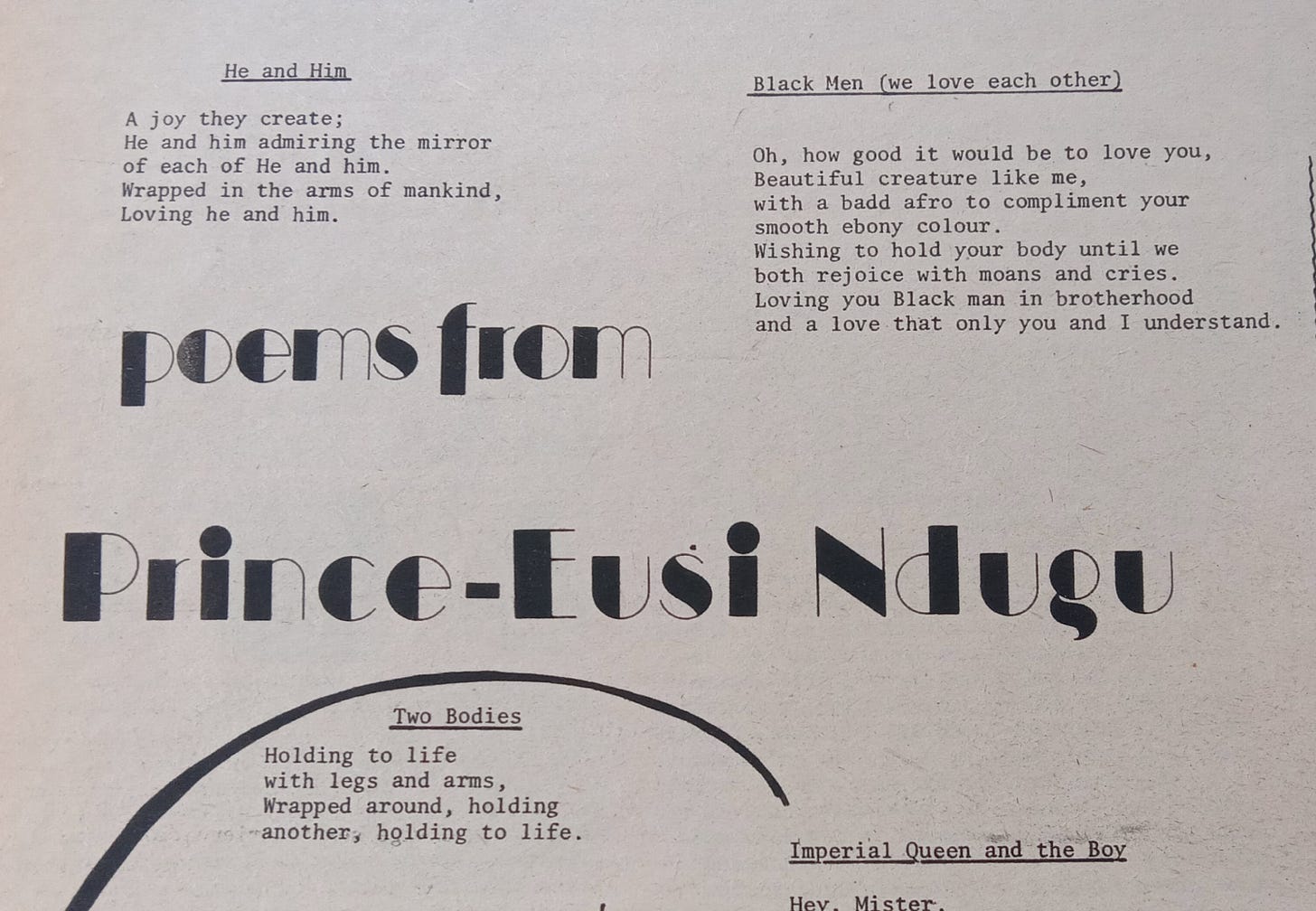
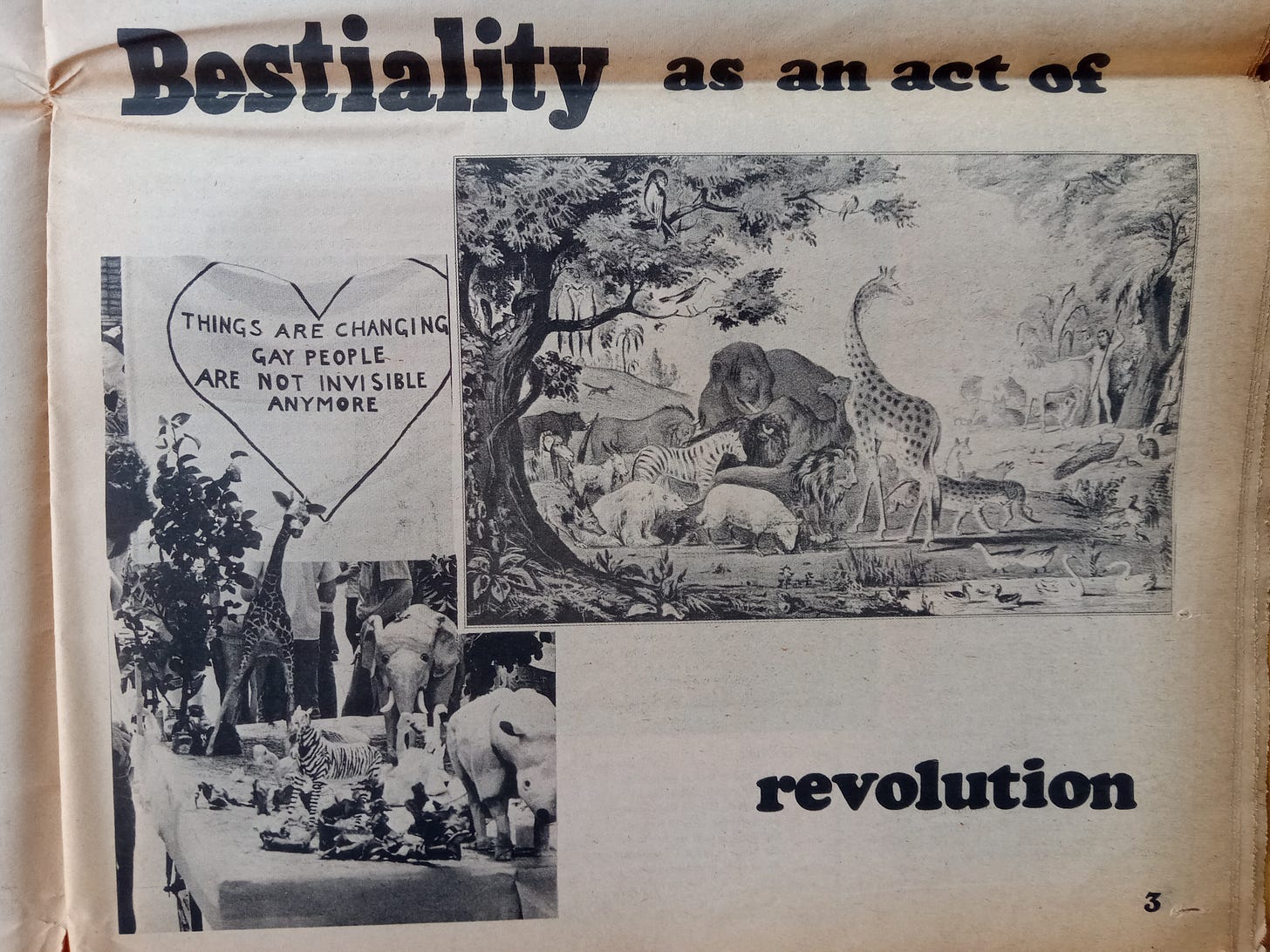


Wow: cosmopolitanism as the bedfellow of nationalism. How queer is that?!
Excellent contextualisation of the gay/queer dilemma. I support decoupling sexuality from mandatory unquestioning solidarity with “the oppressed”, but it seems like a tough sell in the current environment.